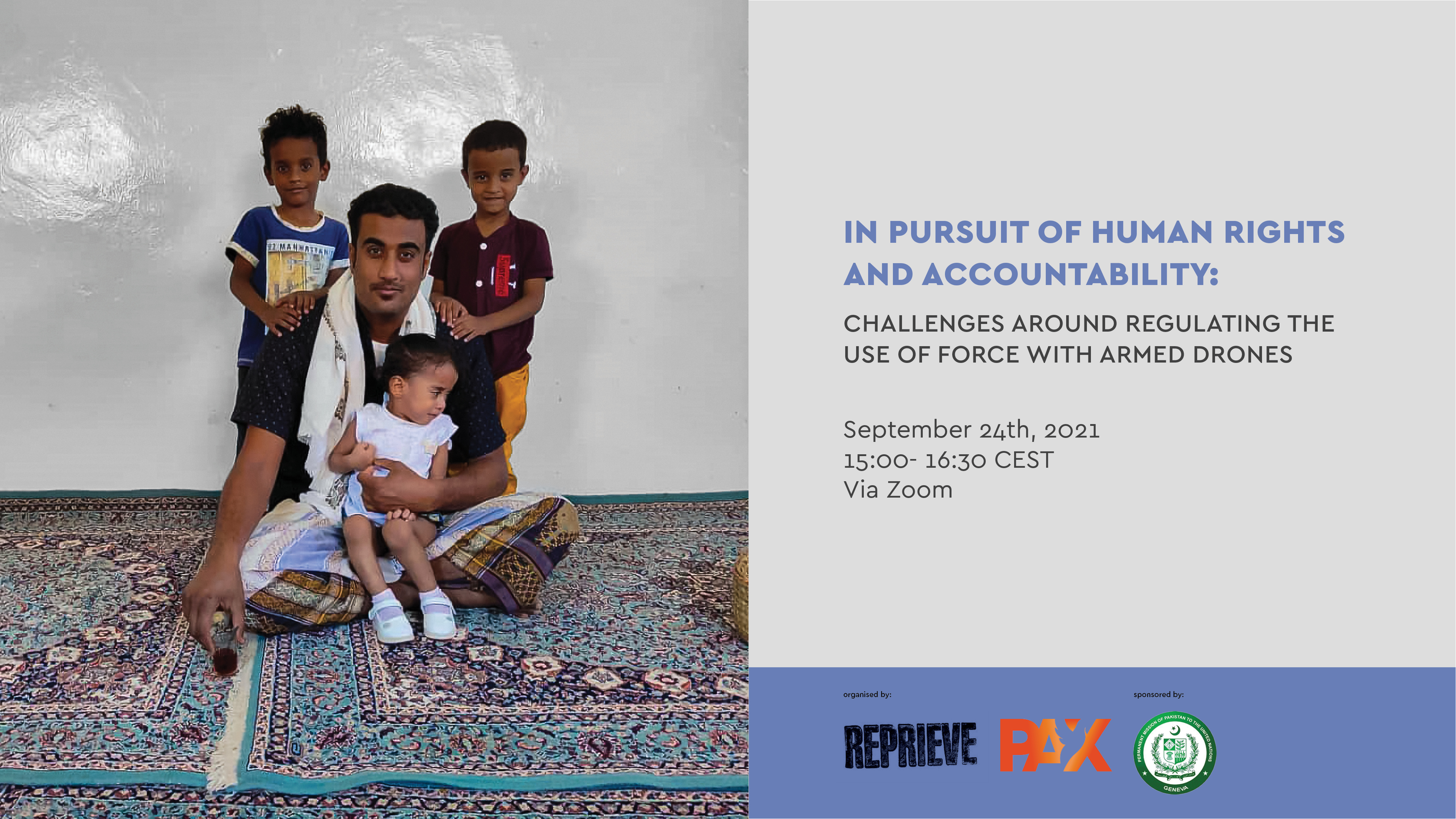Panel discussion – In Pursuit of Human Rights and Accountability: Challenges Around Regulating the Use of Force with Armed Drones

Twenty years after their first deployment outside situations of armed conflict, the use of drones have now become routine for many nations and non-state actors alike. Whilst it is necessary for states to cooperate to address violence carried out by non-state armed groups, it is imperative those efforts comply with and uphold human rights and international law and the unintended consequences of proliferation are taken into account.
The remote nature of drone strikes and reliance on biased data lead to civilian casualties and compromised assessments of compatibility with international law. The lasting impacts of drone operations on communities have taken place in an accountability vacuum, where the lack of transparency and independent post-strike investigations mean communities are often met with silence when their loved ones are killed. The proliferation of drones amongst states and non-state actors risks eroding the rule of law and international norms surrounding the use of force.
After a decade of the use of force in counter-terrorism operations through drone strikes, where are we now? What lessons can be learnt from prior experience to inform future engagement, for example in Afghanistan? How can the international community address the ongoing transparency and accountability vacuum surrounding lethal strikes? What role do voices of affected communities have in ensuring these measures an be truly meaningful? And how can we address concerns regarding the expanding proliferation and use of drone technologies in a multilateral context?
In a side-event to the 48th session of the Human Rights Council on September 24th 15:00-16:30 CEST, hosted by Reprieve and PAX, state representatives, families of victims, human rights lawyers and UN experts will address these and other questions.
Speakers will include:
HE Mr Mir Shahzad Akbar: Advisor to the Prime Minister of the Islamic Republic of Pakistan on Accountability and the Interior, and human rights lawyer who has represented drone strike victims
Prof. Fionnula D. Ní Aoláin: UN Special Rapporteur on the promotion and protection of human rights and fundamental freedoms while countering terrorism
Ms. Jelia Sane: Doughty Street Chambers, specialist practitioner in international law, with expertise in children and armed conflict, who is representing drone strike victims
Ms. Ishraq Al Maqtari: Human Rights lawyer and investigator at the UN-mandated National Commission for Investigation into Allegations of Violations of Human Rights of Yemen
Mr. Ahmed Ali Jaber: Mr Jaber’s relatives were killed in a drone strike in 2012. He is now the lead claimant in a Complaint to German Constitutional Court to address Germany’s role in the strike.
Dr. Agnes Callamard: Secretary General, Amnesty International and former UN Special Rapporteur on Extrajudicial, Summary and Arbitrary Executions (statement in absentia)
This panel discussion is sponsored by the Islamic Republic of Pakistan

